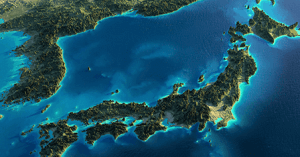Although you may not have to protect your business from natural disasters right now, it can be something that you will need to do somewhere in the future. No one can predict how soon your company will run into some trouble. As a result, the sooner you start preparing your natural disaster emergency plan, the better off you will be when mother nature decides to wreak havoc on your business.
Creating a business continuity plan, establishing a crisis communication policy, and taking out insurance are among the most common methods of preparing your business to better cope with the results of natural disasters. However, you should also create backups of critical data and evaluate the indispensable assets you need to protect.
Here, we take a closer look at these crucial steps every business owner needs to take and explain their importance. Let’s get started.
Create a Business Continuity Plan
A business continuity plan is an essential part of any well-thought-out disaster strategy. It details how your business will operate in the event of a natural disaster. In other words, it’s a well-researched blueprint that prepares you for how you can mitigate against the loss of people and property, as well as how to get back up and running again quickly.
Before writing your business continuity plan, it’s a good idea to create a risk assessment checklist. This will allow you to document the threats and vulnerabilities your company faces. It will then be easier for you to decide the appropriate business continuity measures that you need to implement. For example, if you are worried about communication between members of your company becoming more difficult due to external conditions, you might consider introducing another messaging tool – in such a case, you might want to learn what a SIP server is.
Keep in mind that you should refresh this plan at least once a year. To help you make this process more efficient, you might also consider getting business continuity management software which could prove of utmost importance in difficult times.
Establish a Crisis Communication Policy
In addition to a business continuity plan, you should also have a crisis communication policy. It will help you define how you will communicate with employees, the media, and your customers in times of crisis. You can then use it to guide your decision-making process when disaster strikes.
Additionally, a crisis communication kit can also come in handy. It contains a broad selection of tools you can use to manage emergency response. This kit usually includes a set of guidelines, a sample press release, a list of social media contacts, and a sample contact list.
Take Out Insurance
The impact of natural disasters can be devastating for any business. However, they can be devastating for small businesses in particular. This is because small businesses lack the resources that big firms have to mitigate against the loss of employees, inventory, and property. So, if your company is a small one, you should seriously consider getting insurance coverage.
The type of insurance coverage you decide to get will depend on the nature of your business. If you’re operating a brick-and-mortar establishment, you may want to get property insurance coverage. On the other hand, if you run an online business, you may want to get business interruption insurance coverage instead.
Moreover, you should consider your location. If you’re in an area where hurricanes are not an extreme rarity, you should buy appropriate insurance, and so on.
Create Backups of Critical Data
No matter how well prepared you are, sometimes things can go wrong. When this happens, you don’t want to lose your entire business due to a natural disaster. To protect against such an unfortunate scenario, you need to create backups of all your critical data.
Creating backups of your data is a crucial step that every business should take. These days, backup solutions can be inexpensive and automated, which makes it even easier to do. The most critical data for you to back up are your financial records, company data, and customer data. You don’t want to lose any of this information.
Determine Which Assets Are Indispensable for Your Business
You also need to determine which assets are indispensable for your business – they have to be protected at all costs.
As an example, if you own a manufacturing plant and you need heat and electricity to operate your machines and produce your products, then the heat and electricity you need to keep your business running are of utmost importance. If one or both of these elements were to go out during a natural disaster, your business would lose money.
One way to make sure you’re planning for the right assets is to identify what you need in order to keep your operations running. You can start this process by creating a list of the essential functions your business needs to continue operating and meeting customer demands. Think of these functions as the “must-haves” for your company.
Conclusion
Hopefully, this article has shed some light on the importance of creating a natural disaster preparedness plan for your business. Of course, we haven’t covered every detail in-depth, but we have discussed the most important aspects and how they can affect your business.
Take what you’ve learned here and use it to create an action plan that will help you prepare for whatever Mother Nature throws your way. If you take the time to create a business continuity plan, establish a crisis communication policy, take out insurance, create backups of critical data, and evaluate the assets that are indispensable for your business, you will be in a significantly better position to cope with the results of natural disasters.

Recognising excellence across the Asian Pacific.
Nominate now ➜
Read the latest and past issues of APAC Insider.
Explore issues ➜
Find out how we can help your business grow.
Find out more ➜




















